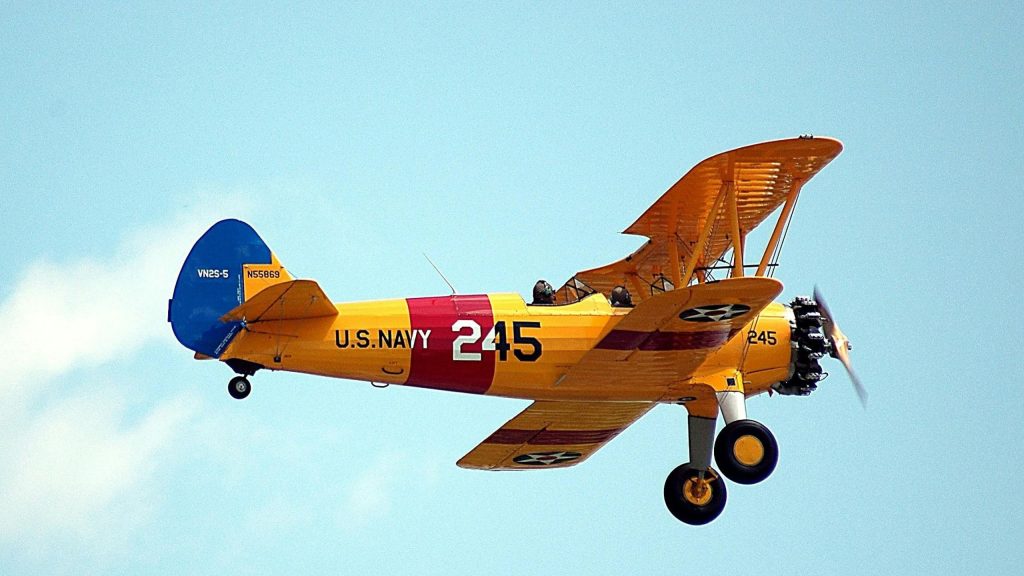Becoming a cargo pilot in the UK is an exciting career path that allows you to fly large aircraft all over the world while transporting cargo.
It requires extensive training, licenses, and certifications, but the financial and lifestyle rewards can make it well worth the effort. Here is a comprehensive guide on how to become a cargo pilot in the UK.
Educational Requirements
To become a cargo pilot in the UK, you must first obtain a high school diploma or equivalent. While this is the minimum education required, having a college degree in aviation or a related field can make you more competitive for jobs. Some airlines and flight schools may prefer candidates with a bachelor’s degree.
Studying aviation, aeronautics, physics, engineering, or other science-related subjects can provide useful knowledge for aspiring pilots. Taking business classes can also help with logistics and operations aspects of the job.
Obtaining Pilot Certifications and Licenses
The main pilot certifications and licenses required to become a cargo pilot in the UK include:
Private Pilot License (PPL)
A PPL allows you to act as pilot-in-command of an aircraft. To obtain a PPL you must be at least 17 years old and pass required knowledge exams, flight training, and practical test. The minimum flight experience required for the license is 45 hours, with up to 5 hours allowed in an approved flight simulator.
Commercial Pilot License (CPL)
The CPL is required for any pilot who gets paid to fly. To qualify for a CPL, you must hold a PPL, be at least 18 years old, complete 200 hours of flight time, and pass exams and a skills test. You must also earn instrument rating certification.
Airline Transport Pilot License (ATPL)
To serve as a captain or first officer on cargo planes, you need an ATPL. This requires at least 1,500 hours of flight time and passing additional exams. You must also have multi-engine aircraft class ratings.
Type Ratings
These certify pilots to fly specific aircraft models. To fly large cargo jets, you’ll need a type rating for each plane. This involves 30+ hours of training and testing.
Medical Certification
All pilots must maintain a Class 1 medical certificate, which requires a stringent physical exam by an aviation medical examiner.
Gaining Flight Experience
In addition to your pilot licenses and ratings, you’ll need a significant amount of flight experience to become a cargo pilot. Airlines and cargo carriers typically require between 1,500-3,000 flight hours to hire pilots.
There are several ways to build flight time:
- Flight instruction – Train students to earn their pilot licenses.
- Aerial tours – Fly sightseeing tours.
- Aerial advertising – Fly banner ads behind planes.
- Crop dusting – Spray fertilizers or pesticides over farms.
- Pipeline/powerline patrol – Inspect infrastructure.
- Flight dispatching – Coordinate flight plans, fuel, and weather.
- Second officer – Entry-level co-pilot position.
- First officer – Co-pilot on passenger/cargo flights.
Any flight time counts towards your total hours, enabling you to ultimately meet minimum requirements for cargo pilot jobs.

Finding Cargo Pilot Positions
Once you achieve all the necessary licenses, ratings, and flight experience, you’ll be ready to apply for cargo pilot jobs in the UK. There are a few potential employers to consider:
- Integrators: Companies like FedEx, DHL, and UPS that offer express door-to-door delivery services.
- All-cargo airlines: Airlines like Atlas Air and Kalitta Air that exclusively transport cargo.
- Mixed passenger/cargo airlines: Many major carriers like British Airways transport both passengers and cargo.
- Charter cargo companies: Provide on-demand cargo flights to businesses and clients.
Check carriers’ websites for job postings. You can also search pilot job boards like BALPA or FlightJobs. Utilize your professional network and attend industry conferences and events to learn of openings.
The most in-demand cargo planes include the Boeing 747, Boeing 777F, Boeing 767, Airbus A300-600F, and Antonov An-124. Familiarizing yourself with these aircraft can make you a more attractive candidate.
Additional Requirements
To begin working as a cargo pilot, there are a few additional requirements:
- Background checks: Airlines will thoroughly investigate your background, criminal history, and credit.
- Psychological evaluation: Assess overall mental fitness for the demands of the job.
- Security clearance: Necessary to access secured areas of airports.
- Passport/eligibility: Airlines require appropriate citizenship/eligibility to work.
Ongoing Training and Certification
Pilot training doesn’t stop once you get hired as a cargo pilot. All pilots must undergo regular proficiency checks, simulator training sessions, and FAA practical exams.
Carriers have their own internal training programs too. You’ll need to become knowledgeable on company operations, procedures, protocols, and aircraft specifics.
Staying current with the latest aviation technology is also critical. The field is constantly evolving, and pilots must adapt their skills accordingly.
Career Advancement Opportunities
As a cargo pilot, you can advance your career in a few different ways:
- Earn a promotion to captain from first officer.
- Transition to larger, longer-range aircraft.
- Move up to supervisory roles like chief pilot or flight manager.
- Leverage experience to join major airlines as a passenger pilot.
- Become a certified flight instructor.
Pilots with leadership, communication, and management skills tend to move up the ranks faster. But advancement primarily depends on flight hours, ratings, and overall performance.
The longer you fly and more experience you gain, the more career options you’ll have access to.
Benefits of Becoming a Cargo Pilot
There are many advantages to choosing cargo piloting as a career:
High salaries – Cargo pilots earn excellent wages. Experienced pilots can make £80,000-£100,000+ per year.
Travel opportunities – Flying cargo around the globe allows you to see and experience many different places.
Advancement potential – Pilots have clear career growth pathways to higher positions.
Job stability – Aviation continues to expand globally, leading to steady industry growth.
Varied schedule – Pilots tend to work set schedules of a few weeks on followed by time off.
Capability to help communities – Transporting vital supplies worldwide provides an important service.
Overall, cargo piloting is an exciting profession for those seeking adventure and financial security. With the right dedication and training, it can be an incredibly rewarding career.
FAQs About Becoming a Cargo Pilot in the UK
1. What is the process for getting a commercial pilot’s license in the UK?
Answer: To get a CPL in the UK, you must obtain a PPL first, then complete 200 hours of qualifying flight time, including 100 hours as pilot-in-command and 20 hours of cross-country navigation. You must also pass a CPL knowledge exam, take flight training at an approved flight school, and pass a practical skills test.
2. How much does flight training cost in the UK?
Answer: Earning a PPL costs £7,000-£13,000 including ground school and flight lessons. CPL training runs £15,000-£25,000. Additional type ratings and ATP certification can cost £10,000-£30,000. Total costs depend on location, hours required, and type of aircraft.
3. What medical tests are required for pilots in the UK?
Answer: Pilots must pass a Class 1 medical examination with an approved aviation medical examiner every 12-24 months. This comprehensive exam checks physical health, blood pressure, vision, hearing, neurological function, and mental fitness.
4. Can I become a cargo pilot with a criminal record?
Answer: It depends on the offenses. Minor infractions like driving violations may not disqualify you. But convictions for felonies and reckless behavior will make becoming a pilot very difficult. Airlines do thorough background checks.
5. Do I need to attend a flight academy to become a commercial pilot?
Answer: No. You can complete flight training independently by working with instructors at local flight schools. However, academies provide structured, immersive training and a quicker route to a pilot career. Major airlines recruit graduates from top academies.
Conclusion
Becoming a cargo pilot in the UK is an ambitious but rewarding goal that’s achievable with proper training and perseverance. The process entails obtaining the necessary licenses, racking up substantial flight hours, and developing requisite piloting skills through rigorous education and experience.
While demanding, a career in cargo aviation can be fulfilling and lucrative for those passionate about flying. With a commercial pilot’s license, aircraft ratings, an ATP certificate, and extensive flight time under your belt, you’ll be ready to take to the skies as a cargo pilot.

